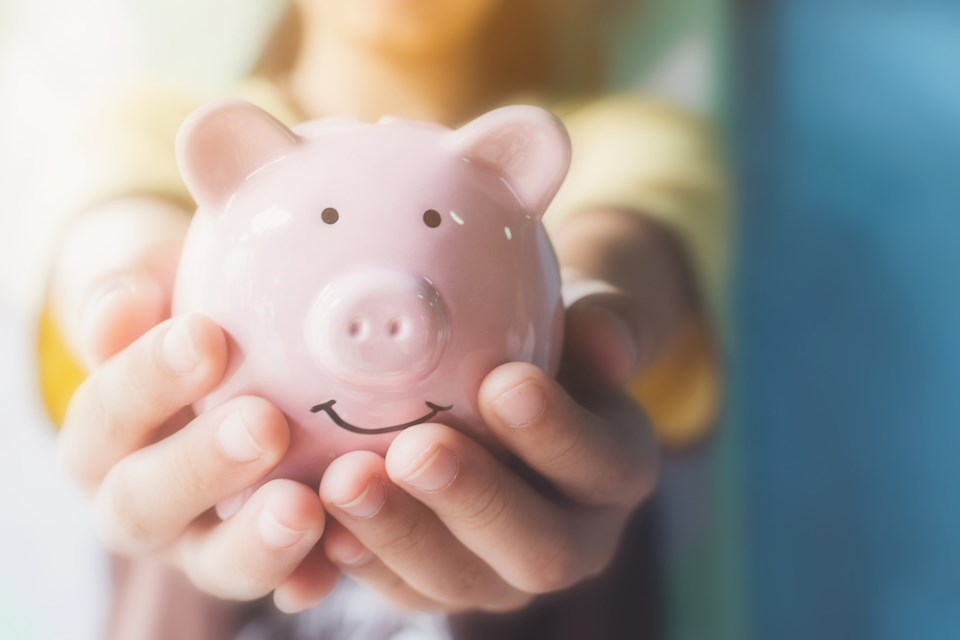As the Bank of Canada has raised their interest rate to five per cent, the highest level Canadians have seen in 22 years, the Better Business Bureau (BBB) is prepared with seven tips to help consumers keep their finances in the black.
"This latest hike is not the news any Canadian wants to hear, but the next crucial step is ensuring the average consumer is prepared with the best tips to ride out the storm," said BBB spokesperson Aaron Guillen in a news release. "Although it looks like inflation is slowing down, we’re still seeing a big pinch on the wallets of hard-working Canadians, from a weekend grocery run to homeowners locked into their mortgage. It’s a tough time to be a new renter or home buyer, let alone live in any metropolitan city right now without support from friends, family, or loved ones."
According to Statistics Canada, the consumer price index (CPI) dropped to 2.8 per cent in June, a steady decrease since its peak of 8.1 per cent in last summer.
But the Bank of Canada says the reasoning behind the recent hike is to prevent CPI inflation from stalling before it reaches an ideal target of two per cent.
The Bank predicts that CPI inflation will see a gradual decrease down to two per cent by mid-2025.
Navigating inflation
Work with trustworthy businesses
The best way to avoid losing money during hard economic times is by making sure you're doing your research before you make your purchase. BBB.org is a vital resource to ensure you find the Sign of a Better Business and avoid falling for scams, fraud, and unprofessional business owners. Determine and assess any debt you owe
When it comes to debts, it’s important to know who you owe, how much you owe, and how you will afford to pay off your loans. If needed, book a meeting or call with a financial advisor or your lender to assess your options around how to pay off your debt, such as choosing a debt avalanche, debt snowball method, or a debt consolidation loan. With a debt avalanche, you approach the debt with the highest interest rate first. With the snowball method, you simply pay off your smallest debt first. Both situations will create momentum to pay off your next debt. Find a financial planner to help you get started by going to BBB.org and looking for the Sign of a Better Business. Negotiate your interest rate with your bank
Not many people ask their financial institutions to lower their rate or review fees; it's a discussion few consumers have, but may be a worthwhile one. Make sure your account is in good standing and be ready to say how many years you've been a good customer, what accounts you have at the institution and what charges you pay. Ask for something specific. Explain that you want a specific fee waived and why. You may be able to get the institution to reduce some or all of your banking fees if you take out a line of credit or mortgage at the institution. Want to choose a bank or credit union? Here are some helpful tips from BBB.org. Stick with your current vehicle and drive less
Both new and used cars are expensive and potentially limited supply right now. Keeping your current ride is likely more economical if you don’t necessarily need a new car right now. If you are leasing a car, consider buying it out. This is recommended because the car’s price was set at the start of your lease – before the high inflation began. On the same note, consider adjusting your driving habits. ICBC offers a 10 per cent low-kilometre discount on Basic, Extension Third Party Liability, and Collision coverages for eligible customers who drive their vehicle less than 5,000 km per year. Get smarter with your grocery shopping
Meat and fish have seen some of the highest price increases across the country. Eating vegetarian a few nights a week may help reduce food costs. Also, getting serious about meal prep, shopping your pantry, and reducing food waste will help lower grocery bills. Perform an energy audit on your home
Go to BBB.org to research a company that can perform an EnerGuide Home Evaluation – an energy evaluation helps you identify options to reduce energy bills. You may notice a spike in your energy consumption that helps you understand your high energy consumption, such as doing laundry without a full load, or having too many kitchen appliances plugged in but not being used. Set up a budget
Once you have an idea of where you are spending money, you can establish a realistic budget. Many experts recommend following the 50/30/20 rule. Allow 50 per cent of your income for your needs, 30 per cent for wants, and use 20 per cent to pay down debt or save. Check out this online budget planner from the Financial Consumer Agency of Canada.





